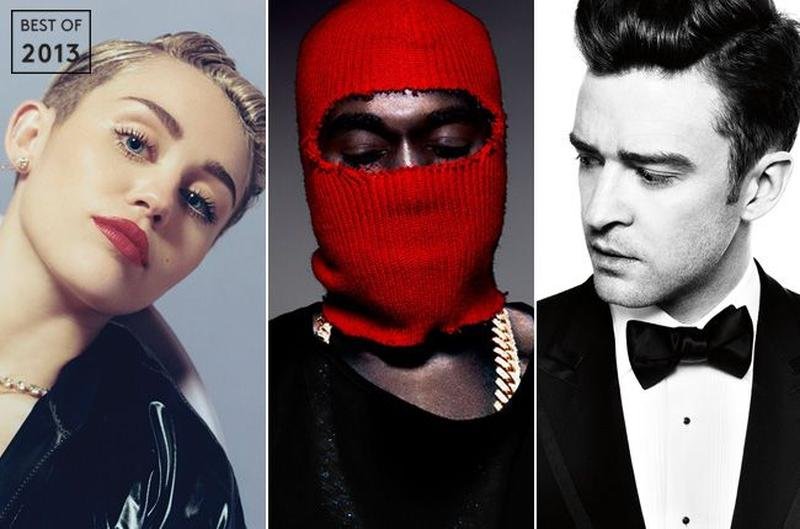Music may be beautiful and melodious, but sometimes it can be harsh. It is often said that there is always something bad with every good thing. Likewise, even when it comes to music, there are some reputed music critics out there who praise only the beautiful parts and play down the bad parts in it. In today’s article, I am going to take you for a ride around the feature of famous music critics and try to figure out what their reviews say about them.
In this article, I will talk about “Famous Music Critics”. Let’s start.
Music Critic Job Description
The Music Critic Job Description is a very important document. It will help you to understand what the position entails and what are the expectations of the employer. The music critic job description must include all the duties, responsibilities and requirements of the person who will hold this position. Here are some of the most important points that should be included in such a document:
Music Critic Job Description
The Music Critic Job Description should include all the duties, responsibilities and requirements of the person who will hold this position. Here are some of the most important points that should be included in such a document:
-Analyze and interpret music compositions based on their personal preferences and knowledge.
-Evaluate different types of music styles and genres by comparing them with others.
-Write articles about music events, concerts or festivals held by local artists or by famous international artists coming to town for a concert tour.
-Write reviews about new albums released by local artists as well as world-famous ones performing live in your city or town.
How To Become A Music Critic?
Many people ask how to become a music critic. The answer is simple: you have to love music and the art of writing.
A music critic should be able to write about music in a way that is both accurate and entertaining. A good critic must also be able to use proper grammar, spelling, and punctuation.
In order to become a professional music critic, it is important that you have an education in journalism or English. You can also get training in these areas by attending classes at your local college or university. If you are interested in becoming a magazine writer or editor, then it is recommended that you pursue an education in this area as well.
If you want to become a famous music critic, then you must have the ability to write well and possess excellent communication skills. Many critics begin by writing online reviews for free sites on the Internet like Amazon or iTunes before they are offered paid positions with newspapers or magazines.

Famous Music Critics
David Fricke is a senior editor at Rolling Stone. The Boston Globe called him “the most influential rock critic in America.” He’s also been called “the best music writer on the planet.”
Robert Christgau has been writing about music since the late ’60s. In 1990, he was inducted into the Rock and Roll Hall of Fame as an early supporter of hip-hop and rap music. His best-known column is his Consumer Guide, which he published for over 30 years in The Village Voice.
Greil Marcus is a music journalist and cultural critic whose 1968 book “Mystery Train” is considered one of the greatest books ever written on rock and roll music. His other works include “Lipstick Traces: A Secret History of the 20th Century” (Harvard University Press), “Dead Elvis: A Chronicle of a Cultural Obsession” (1991), “Invisible Republic: Bob Dylan’s Basement Tapes” (1997) and “Like a Rolling Stone: Bob Dylan at the Crossroads” (2009).

Mainstream Music Genres
Mainstream Music Genres
Mainstream music genres include rock, pop, and country. Some of the most popular mainstream music genres include hip-hop and rap.
Rock Music
Rock music is one of the most popular mainstream music genres in the United States. It combines elements of blues, jazz, and country with a guitar-heavy sound that emerged in the mid-1960s as an alternative to pop music. Rock bands usually consist of a lead vocalist who sings in a high register, two electric guitars, an electric bass player and a drummer who plays on electronic drum pads. The classic rock genre emerged in the 1960s and 1970s with artists like The Beatles, The Rolling Stones, Bob Dylan and Bruce Springsteen gaining popularity for their unique sound.
Pop Music
Pop music is one of the most popular mainstream music genres in America today. Pop songs are often heard on radio stations across the country as well as on television shows and movies. Pop artists create catchy melodies with simple lyrics that appeal to teenagers and young adults who may not have much exposure to other types of music besides pop songs played over commercial radio stations or on television shows such as MTV or VH1 Soul Train.
FAQs for Famous Music Critics
Now that you understand “Famous Music Critics”, let’s move on to the FAQ section.
Who Is The Most Famous Music Critic?
Who Is The Most Famous Music Critic?
The most famous music critic was Leonard Bernstein, who wrote for the New York Times. He died in 1990, but his articles are still published as books. He was known for reviewing musicals and classical pieces, as well as providing commentary on current events in the world of music.
Another popular critic was Robert Christgau, who wrote for Esquire magazine. He reviewed albums and concerts and wrote about many famous musicians. In 1969, he created a system called the “Platinum Record”, which is used to rate albums today.
Who Is The Most Famous Music Critic?
The first music critics were the Greek philosophers Plato and Aristotle. They believed that music was a mathematical science, and that it should be studied as such. Their ideas were adapted by Renaissance scholars in Italy, who also saw music as a science.
The first modern music critics were French composers and musicians of the 18th century, who wrote about music in periodicals like Journal de musique (1764) and Mémoires secrets sur la musique (1775). In the 19th century, German critic Eduard Hanslick became known for his essays on music.
In the 20th century, American writer Virgil Thomson was one of the most influential critics in America before his death in 1989. His works included The Music Review (1934-1940), which focused on American classical music; Another Time: A Memoir (1983); and Music Reviewed: An Anthology of Writings From The New York Herald Tribune (1944). He also wrote numerous books about American composers like George Gershwin and Aaron Copland.
Who Are Music Critics?
Music critics are people who write about music, whether they’re professional journalists or just passionate enthusiasts writing on the Internet. They can write reviews of records, concerts and even entire genres (like jazz or classical music). They can be professional writers who get paid by newspapers or magazines, or they can simply be fans with blogs.
Music critics often have different areas of expertise. Some may be experts on jazz or classical music; others may focus on pop music and hip-hop. Some critics specialize in one genre, such as folk or punk rock; others cover all genres equally.
Music critics don’t just review new albums — they also review concerts and festivals. Some critics even write about books about music or biographies of musicians, film soundtracks and other aspects of popular culture that relate to music.
Music critics are people who write for newspapers and magazines about music. They may be professional musicians themselves or just experts in music theory.
Music critics aren’t just there to praise you when you’re doing well. They can also point out the flaws in your music and tell you how to improve it. And they can also criticize other musicians — even if they don’t know them personally — which can be hard to hear.
Music critics have been around since the late 1700s, when newspapers started printing reviews of concerts, operas, and other musical events. Today there are many different types of music critics: classical music critics who write about classical symphonies; jazz critics who write about jazz; pop music critics who write about rock bands; country music critics who write about country singers; dance music critics who write about techno or house music DJs; hip hop critics who write about hip hop MCs; and so on.
What Are The Best Music Review Sites?
There are a huge number of music review sites, and it can be hard to find the best ones. You want to read reviews from people who know what they’re talking about, not just people who are trying to sell a CD or concert ticket.
Here are some of the best music review sites:
Consequence of Sound – This site covers everything from indie rock to hip hop. It’s owned by Consequence Media Group, which also runs The A.V. Club and several other sites.
Pitchfork – Pitchfork has been around for over 20 years and is known for its intelligent and critical reviews of new music. It was one of the first sites to start using a 10-point rating system for albums rather than just using words like “good” or “bad.”
The Quietus – This site provides news and reviews from all over the world, including interviews with musicians and artists as well as features on film, books and other cultural topics.
Why Is Anthony Fantano Famous?
Anthony Fantano is a famous music critic from the United States. He has created a YouTube channel called The Needle Drop, where he reviews music and other things.
Fantano started his career by uploading videos on YouTube. He released his first album in 2009 and then started reviewing music on his channel. He also does other things such as reviewing movies and TV shows and interviewing musicians like Chance the Rapper and Childish Gambino.
He has received many awards for his work in the field of music criticism, including the Shorty Awards for Music & Music Video Channels: Critic, People’s Choice Award for Favorite Music Critic, and so on.
In addition to being a musician himself, he has also collaborated with others such as the band Death Grips in 2013.
Anthony Fantano, also known as the internet music critic The Needle Drop and Anthony F. is a music reviewer, who has gained popularity on YouTube for his reviews of new albums. He has a following of more than 300,000 subscribers on YouTube and more than 200,000 followers on Twitter. He has also appeared in a number of interviews with mainstream media such as The Guardian and NME.
Fantano was born in 1986 in New Jersey, United States. He grew up listening to rock music and became interested in music at an early age when he was around 12 years old.
He started posting his reviews on his website The Needle Drop in 2006, where he would offer his opinion on albums he received from record labels or was given free copies of by musicians themselves. His reviews were often quite negative but still insightful and often contained some humour – something all critics need to have if they want their writing to be taken seriously by readers.
In 2013 he joined YouTube where he gained popularity for his honest opinions on new albums, especially those from hip-hop artists such as Kendrick Lamar and Kanye West who are some of the biggest names currently working in music today.
Do Music Critics Matter?
Music critics and the media have long been a staple at music festivals. With the rise of social media, though, the number of outlets has increased exponentially, with everyone from bloggers to YouTube personalities now weighing in on artists.
The question is: Do music critics matter? According to a recent study by Nielsen Music, the answer is “yes.”
The study was based on data from more than 100 million U.S. consumers who had listened to music since January 2014. The findings showed that “critical acclaim” had a significant effect on whether people bought an album or a song online.
“For every 10% increase in critical acclaim scores, there is a 9% increase in overall consumption,” wrote Nielsen Music executive vice president David Bakula.
For the last 40 years, music critics have been a ubiquitous part of the cultural landscape. But does anybody really care what they think?
A new study from Nielsen Music has found that only 17 percent of people surveyed said they care about music reviews. The rest either don’t pay attention to them or simply don’t care.
The results are interesting because they reflect a larger trend in today’s media landscape: Consumers are consuming less traditional journalism and more editorialized content produced by their peers.
Music critics don’t always have access to artists or their managers before albums are released, which means their opinions may be based on incomplete information. Still, they’re often considered authoritative voice in an industry where musicians value authenticity over money and fame. And while many people consider music criticism to be subjective — something that can’t be quantified — it was still surprising to see how many people still rely on these voices as a source of information about what’s good and bad in music today.
Conclusion for Famous Music Critics
We’ll never get tired of new music. And that’s why it’s great to be able to listen to reviews by esteemed critics in leading publications like The New York Times and Rolling Stone. Discerning music criticism is, in itself, a form of art in its own right, which is why we find the insights of these famous music critics so useful when perusing the latest releases on Amazon or at the record store.
Thank you for reading, and I hope you get the point of “Famous Music Critics”. If not, please contact me or leave a comment below. I would be pleased to help in any way I can.





